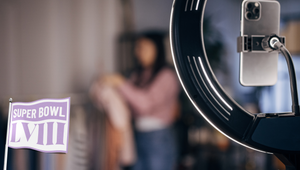
Resist the Robots

While watching the GRAMMY’s, I sat and pondered why we really revere rock stars.
The answer is multi-faceted. Their ability to produce music associated with a time and place in our past is incredibly unique. The fact they behave in ways we would never dream of is liberating to watch from afar. But at its core is a simple appreciation of skill. Our culture loves to revere talent. Its subjective, but when we identify it, we worship it. Talent is simply scarce. There aren’t many people on the planet who exhibit incredible ability that resonates with us. Their output is unique. The artist is tapping into a very specific fingerprint of musical composition that hasn’t been delivered before and lyrical development that reflects the human condition.
Today that scarcity is at risk. I truly am amazed that the launch of ChatGPT has not created a bigger global outcry. ChatGPT, released late last year, is a machine-learning AI model that can generate human-like text based on a constant evaluation of the world’s texts. Its unreal ability to respond to nuance and instantly churn out accurate and articulate text is remarkable. One only needs to ask ChatGPT to explain the function of the human kidneys in the style of Dr.Seuss to witness just how versatile it is. The difference between this chat AI and its predecessors is its amazing ability to write replies that draw on the context of the entire conversation. Our culture needs to have a bigger debate as to the role AI should be able to play in society, but, today, I begin and focus that debate on a simple query: should robots be allowed to create art?
The minimal concern to date around ChatGPT has been focused on student plagiarism. Why would a student ever labour over a paper again when ChatGPT can churn out a B+ thesis on any topic in seconds? A valid concern. But I would hypothesise a more timely question should be around the ability of robots to create art. As stated above, our love of music is rooted in scarcity. What happens when AI reduces musical composition to an algorithm of musical DNA that it sees resonating with the general public? If it can write a cupcake recipe in haiku form, it can certainly write a breakup song in the style of Taylor Swift or an EDM track with a Tiesto-like drop. All cute parlour tricks right now, but at the core of AI is its ability to learn and improve. As the system evolves and learns, what’s stopping it from writing the next 'Blinding Lights,' and what will the general public think of a new hit song written by a robot?
Maybe I am too idealistic, but I believe there would be public backlash to AI-created compositions. Once the novelty wears off, people will become more aware of that fundamental element of music worship - scarcity. If ground breaking composition is no longer scarce, does music lose its appeal? And, if so, what is the impact on society as a whole? How does that permeate the greater culture?
I have worked at the intersection of brands and music for 25 years. Throughout my tenure, I have always looked for ways that brands could leverage new technology to bring fans new perspectives on their favourite rock stars, whether it be creating concerts in Roblox and Fortnite or using 3D mapping to create unique concert backdrops for Alicia Keys, brands love the opportunity to be recognised for delivering new ways to access the rock stars they love. Brands have been at the forefront because they do this without industry ROI constraints. Their marketing actions have always been driven by engagement, and the integration of new technology in music delivers tremendous engagement. Brands are already looking at AI as the evolution of that relationship to give fans something bigger and better. However, brands need to tread incredibly carefully and draw the line at AI integration. With the best of intentions, brand funding can single-handedly create the tipping point where the rock star is surpassed by the robot and the implication on culture could be catastrophic.
So, as brands gravitate toward ChatGPT and AI to drive brand engagement, I warn to do so with great caution and a larger understanding of impact. The impact might not be as apocalyptic as flipping the switch on Skynet, but you might just create a public backlash when the average music lover realises they don’t like the taste of robot.













